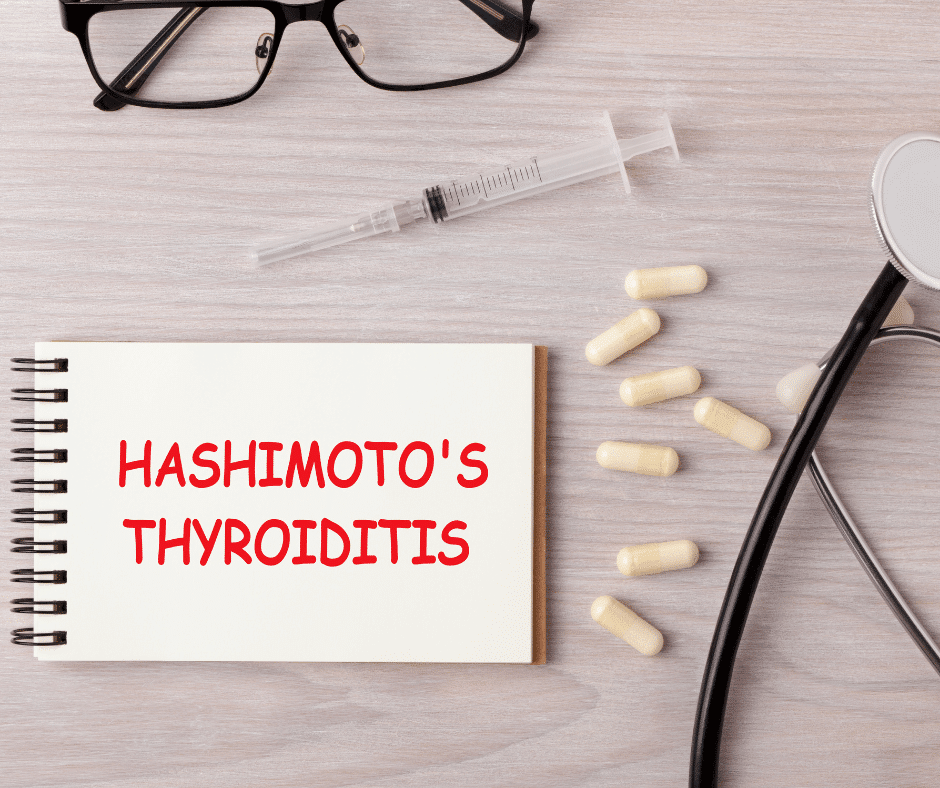If you are trying to get pregnant using IVF or other fertility treatments, you will need to have a blood test before treatment. This is necessary to determine the different hormones that are carried in the blood. These include thyroid hormones. These tell you whether your thyroid is working too much or too little. An underactive thyroid can lead to complications before and during pregnancy. In Western countries, where iodine supplies are guaranteed by law, Hashimoto's thyroiditis is the most common cause of hypothyroidism.
What does the thyroid do?
The thyroid gland looks like a butterfly and rests on the windpipe in the neck. It is also an endocrine organ, which means it produces hormones. To make these hormones, the thyroid needs iodine, which you get from your diet. In order to meet iodine requirements, many Western countries have laws requiring the use of iodised salt in food production. Since then, thyroid problems caused by iodine deficiency have become rare.
When blood levels of the hormone are too low, a control centre in the brain called the hypothalamus detects this. The hypothalamus then releases a hormone called TRH. TRH causes the pituitary gland to release a hormone called TSH (thyroid stimulating hormone). When TSH binds to receptors in the thyroid, it stimulates the thyroid to release its pre-produced hormones T3 and T4 into the blood. As soon as there is enough T3 and T4 in the blood, the hypothalamus registers this and stops releasing TRH. This self-regulating circuit is called the hypothalamic-pituitary axis. It also controls other endocrine organs such as the adrenal cortex with cortisol, aldosterone and testosterone/oestrogen, the ovaries, the testes, milk production in the mammary glands and growth in children and adolescents.
Once in the blood, T3 and T4 can be distributed throughout the body. T3 has a regulatory effect on some metabolic pathways and also promotes cell differentiation. T3 is therefore the active form of thyroid hormone. However, more T4 is produced because it stays in the bloodstream longer and can be transported more easily. T4 can be cleaved at the site of action and converted into the active hormone T3.
In addition to T3 and T4, the thyroid also produces calcitonin, which regulates calcium levels. However, its production and importance are comparatively small compared to T3 and T4.

What happens in Hashimoto's?
Now on to the subject of this blog. Hashimoto's is a form of thyroiditis. It is an inflammation of the thyroid gland. It happens when the body's immune system produces antibodies against an enzyme involved in the production of the hormones T3 and T4. As a result, other cells of the immune system start to destroy the marked structures of the thyroid gland. An inflammatory response develops within the thyroid, which spreads and destroys the tissue. As the disease progresses, there is less and less functioning, healthy thyroid tissue left to produce hormones. Because this process involves the immune system attacking the body's own structure, Hashimoto's can be classified as an autoimmune disease.
Like most thyroid diseases, Hashimoto's is mainly a female disease. There is only one man for every woman affected. In principle, the inflammation can occur at any age, but most patients are between 30 and 50 years old.
What are the symptoms of an underactive thyroid?
The inflammation has now destroyed large parts of the thyroid gland, causing it to stop working. The body therefore lacks the hormonal action of T3. This condition is known as hypothyroidism.
Hypothyroidism may go unnoticed, at least for a while. If it lasts longer, some characteristic symptoms develop. These include frequent chills, listlessness, weight gain despite loss of appetite and poorer reflexes, brittle hair, hair loss and fertility problems. Some patients may even develop depression.

«In principle, pregnancy is not a problem with appropriate medication.»
Diagnosis of Hashimoto's
Because the brain is unaware of the inflammation and loss of function of the thyroid, it continues to release the hormones TRH and TSH when the level of thyroid hormones in the blood is too low. The brain continues to do this until the hormone level returns to its set point. But because the thyroid tissue is so damaged by inflammation that it can no longer produce hormones, the TSH level continues to rise instead.
TSH is easy to measure in the blood and is therefore one of the parameters that is tested before IVF. If the level is too high, further diagnostic measures can be taken.
These include an ultrasound scan of the thyroid. This will usually show that the organ is smaller and has a patchy appearance.
A more detailed blood test may also be ordered. This often shows the specific antibodies that the immune system has produced against the thyroid. This is a very good way of confirming the diagnosis.
Fertility and pregnancy
As mentioned above, Hashimoto's can cause fertility problems in people with the condition. Because of the extremely high levels of hormones trying to stimulate the broken thyroid gland, other areas of the hypothalamus-pituitary axis get confused. This eventually leads to less GnRH (gonadotropin-releasing hormone) being released. As a result, the ovaries can no longer be properly stimulated, causing many women to develop fertility problems.
If you have hypothyroidism, however, a successful IVF is not the end of the story. Even if you only have a mild form of the condition, it is essential that you take tablets to replace the missing hormones during pregnancy. Otherwise, the unborn baby will produce a lot of TSH as it tries to compensate for the mother's hormone deficiency. However, as the child's thyroid gland is actually healthy, this has a negative effect. Many of these children are born with an overactive thyroid.
There is also a risk that the child will not develop properly. This is because T3 plays an important role in cell differentiation. As a result, women with hyperthyroidism have a threefold increased risk of miscarriage.
What is the treatment for thyroiditis?
As mentioned above, the missing hormones can be taken in tablet form. If patients are properly adjusted, they will notice positive effects very quickly. The symptoms usually disappear completely, and the levels of the other hormones in the control loop also return to normal.
Unfortunately, the thyroid gland does not recover from Hashimoto's because the immune system keeps attacking it until there are no more cells for the antibodies to target. Treatment is therefore lifelong. It may need to be adjusted in special situations, such as pregnancy. In principle, however, pregnancy is not a problem with the appropriate medication. If your gynaecologist tells you that your TSH is high but does not want to do any further tests, you can go to an endocrinologist. This is where you will get an accurate analysis of your problem and usually a solution.
